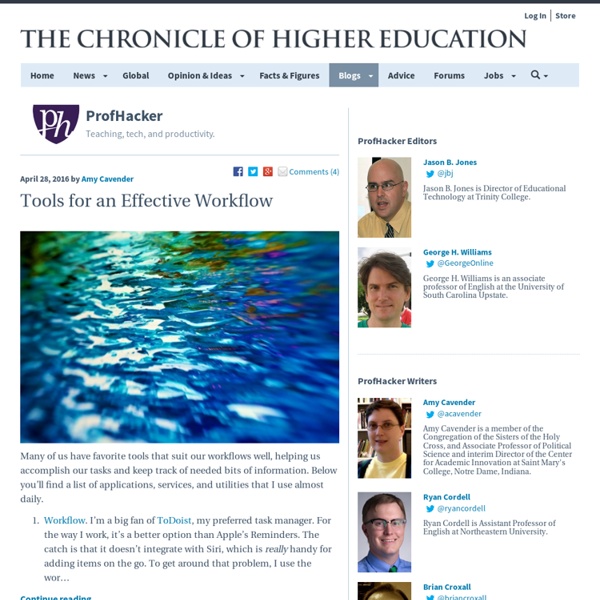Beth’s Thoughts on Technology in the Classroom — This blog focuses on education, technology and learning.
It has been one heck of a roller coaster start to the school year. Lots of new tech to deploy, PD to develop not to mention new state standards to integrate and the likely hood of licensing changes. It is a lot to take in. But October is here and things tend to get into a rhythm and it is time to connect with others and indulge in some personal learning. I look forward to attending MassCUE our stated premier conference in technology and learning.
Extract usernames from E-mail IDs [using LEFT and FIND formulas in Excel]
Posted on January 19th, 2010 in Learn Excel - 87 comments Today we will learn to use Excel’s LEFT and FIND formulas. But what fun it is to learn a new formula on a Tuesday? So, we will actually learn to use these formulas to solve the problem: “extract the username from an email ID”
@Ignatia Webs
Digital History: A Guide to Gathering, Preserving, and Presenting the Past on the Web
This book provides a plainspoken and thorough introduction to the web for historians—teachers and students, archivists and museum curators, professors as well as amateur enthusiasts—who wish to produce online historical work, or to build upon and improve the projects they have already started in this important new medium. It begins with an overview of the different genres of history websites, surveying a range of digital history work that has been created since the beginning of the web. The book then takes the reader step-by-step through planning a project, understanding the technologies involved and how to choose the appropriate ones, designing a site that is both easy-to-use and scholarly, digitizing materials in a way that makes them web-friendly while preserving their historical integrity, and how to reach and respond to an intended audience effectively. On this website, we present a free online version of the text.
Blog - Will Richardson
Over the years, we’ve heard a lot of predictions about what the future of work holds for all of us, not just our kids. It’s interesting now to see some of those predictions actually playing out. Case in point is this post in the Harvard Business Review that summarizes the Herculean change initiative now underway at AT&T. It’s a fascinating read on it’s own, but it’s even more interesting when you start to align some of the findings to the work of schools.
Gadget reviews and news by Julie Strietelmeier and friends since 1997 ? The Gadgeteer
The Future of Archives in a Digital Age
Scholarship and teaching in the humanities are undergoing a seismic shift, from a culture once based almost entirely on in-person and printed exchange to one reliant on a combination of traditional communications and digital technologies. It is a time of excitement for many and of skepticism for others. What does it mean that for many the most used "libraries" have become "digital"? What are the implications for the development of knowledge at a time when vast amounts of data have not been made available in digital formats? Print for the People, a Mizzou Advantage networking group on digital humanities, is considering these questions. We will host, "The Future of Archives in a Digital Age," on February 24–25, 2011, with keynote addresses by Robert Darnton, Director of the University Library at Harvard, and William Ferris, former chairman of the National Endowment for the Humanities.
Cathy Jo Nelson's Professional Thoughts
Apple Insider News and Analysis
Analyse de réseau⎜modéliser l’histoire de la philosophie
Quel philosophe et quelles influences ? L’histoire de la philosophie n’est pas un long fleuve tranquille et les implications des travaux et idées des précurseurs de la philosophie occidentale sont une source d’inspiration sans fin pour les générations de penseurs qui leur ont succédé. Le blog Drunk&Lampposts, en la personne de Simon Raper, nous propose une visualisation tout à fait surprenante des relations d’influence entre philosophes référencés sur l’encyclopédie en ligne Wikipédia. Pegasus Data a obtenu de vous en fournir une traduction française (retrouvez l’article original) que nous augmentons de commentaires.
E-Learning Queen
Writing History in the Digital Age



